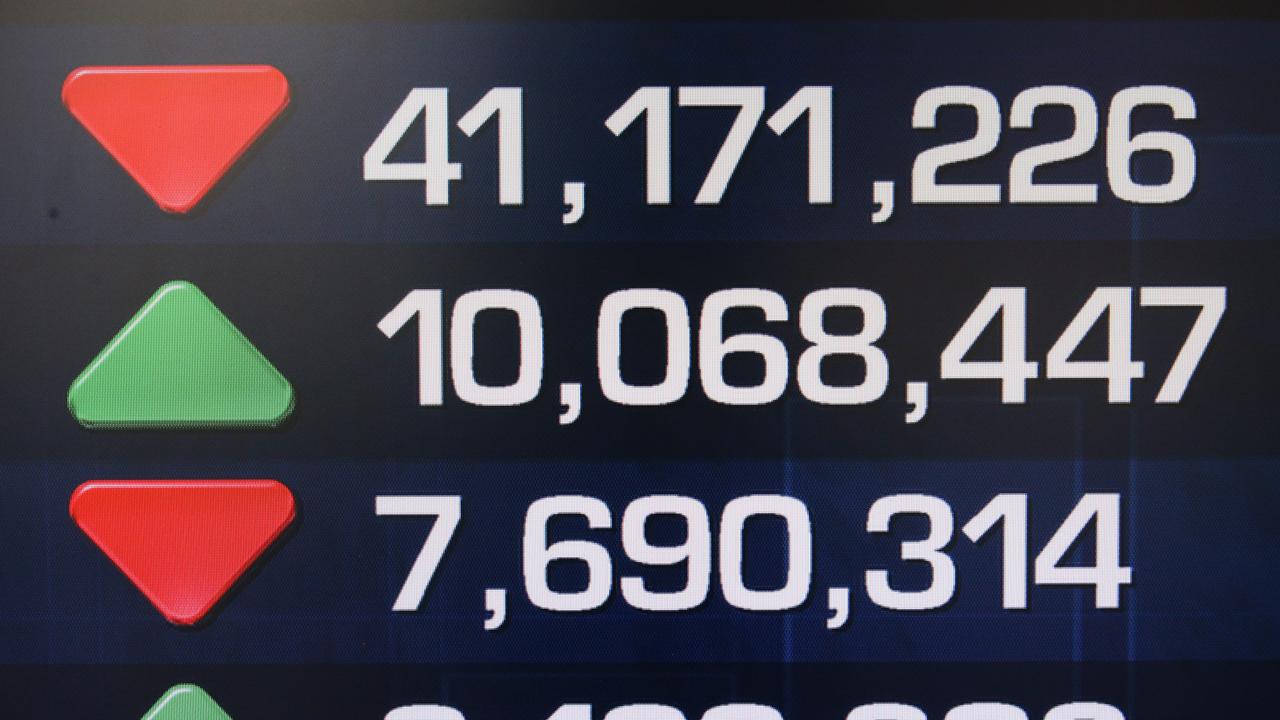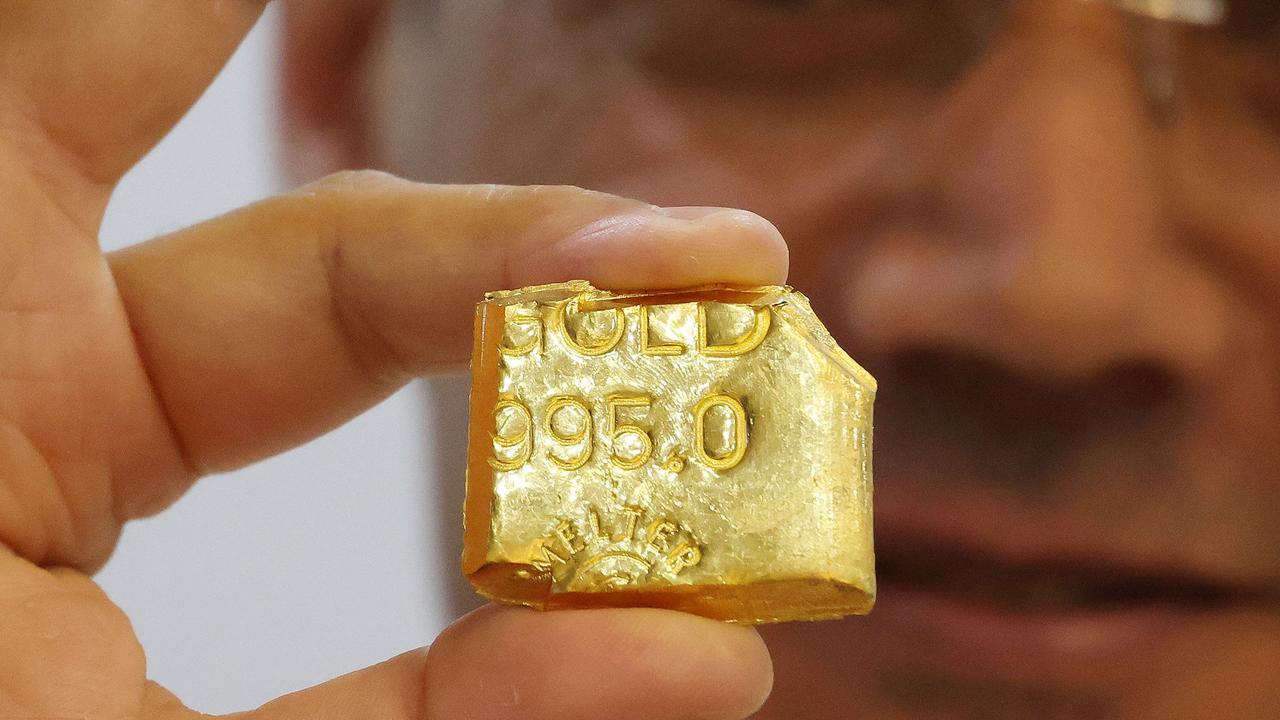Shark Tank Australia start-ups: Where are they now?
TV juggernaut Shark Tank Australia has had some big successes – but this is how they have progressed. See the list.
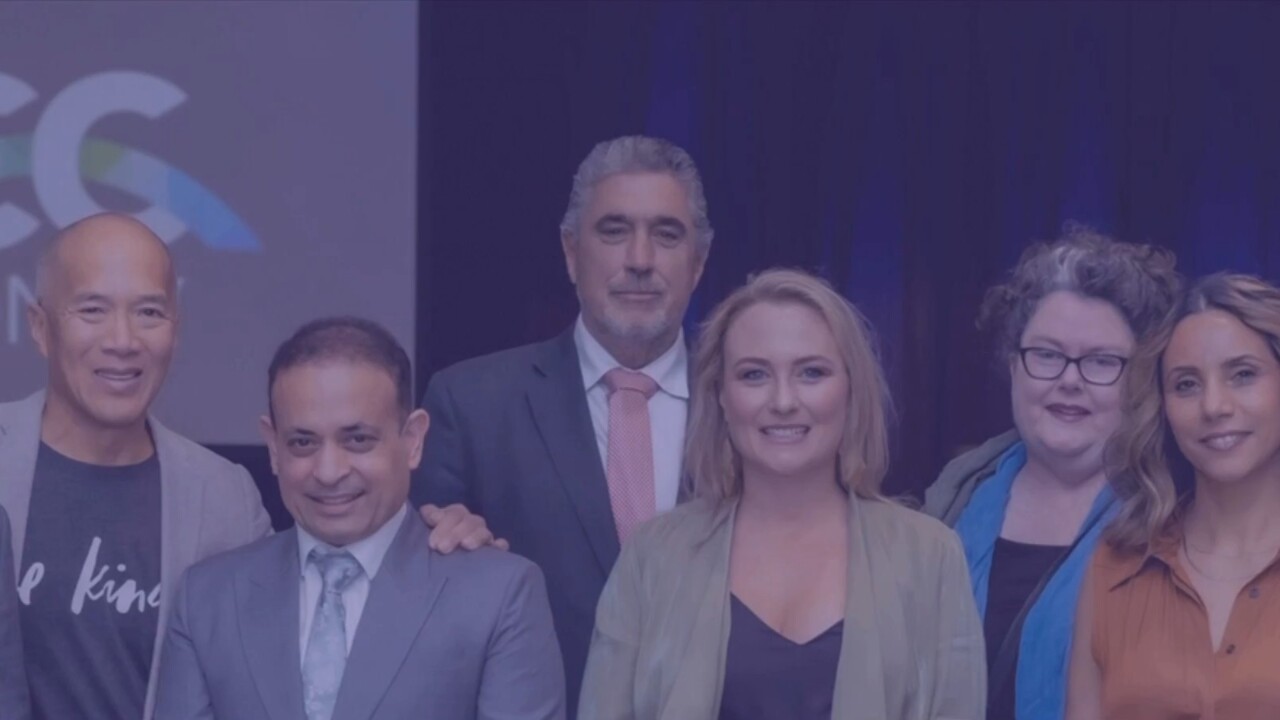
Business
Don't miss out on the headlines from Business. Followed categories will be added to My News.
A car share concept now owned by Uber. Specialised clothing pegs stocked by some of the world’s biggest retailers. And a viral eyeliner which spawned a beauty business worth $10m.
They are some of the biggest success stories of TV juggernaut Shark Tank Australia.
The original series spanned four seasons, wrapping in 2018, and helped skyrocket small Australian businesses to global success.
But it wasn’t all beer and skittles – some up-and-comers walked away from deals that could have made them. And they may still rue doing so.
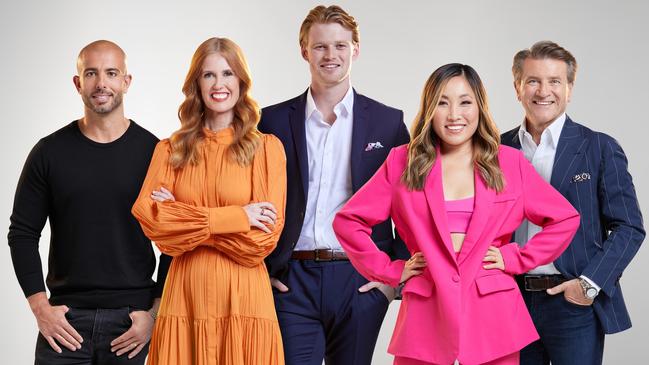
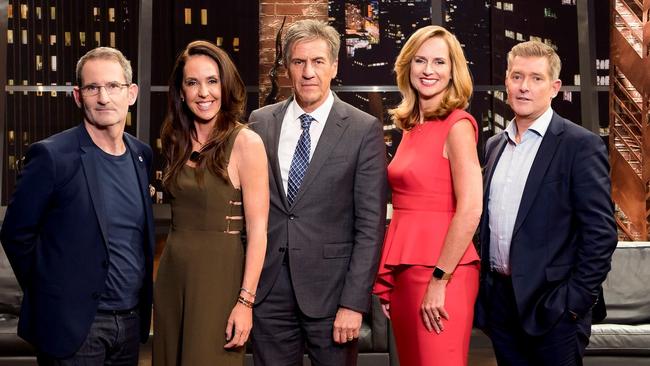
As the current season of Shark Tank Australia plays out with fierce competition between the new sharks, we focus on some genius designs that came to life through the local version of the internationally-recognised show.
Here’s where they are now:
CAR NEXT DOOR
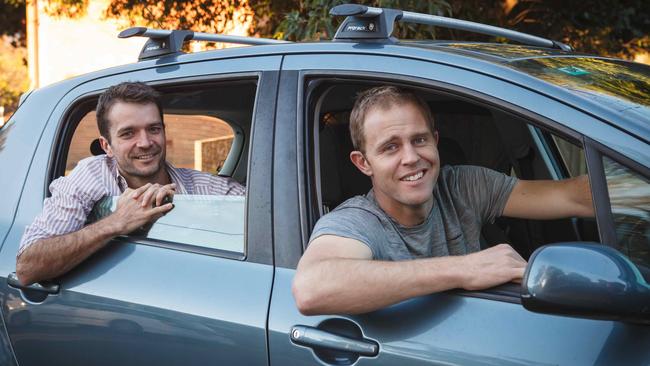
Launched in 2012, Car Next Door was a car-sharing platform that allowed individuals to rent out their vehicles. Similarly, drivers in need of a car could use the app to ‘hire’ a nearby car.
Will Davis and Dave Turnbull were among the more successful contestants, going on Shark Tank in 2016 asking for $300,000 in exchange for 4 per cent equity. Shark Steve Baxter came through with the money on a promise of more equity for 30 hours of mentoring over three years. Davies and Trumbull sold out to Uber in 2022 based on a reported valuation of $87 million. The service has now been rebranded as Uber Carshare.
BE FIT FOOD
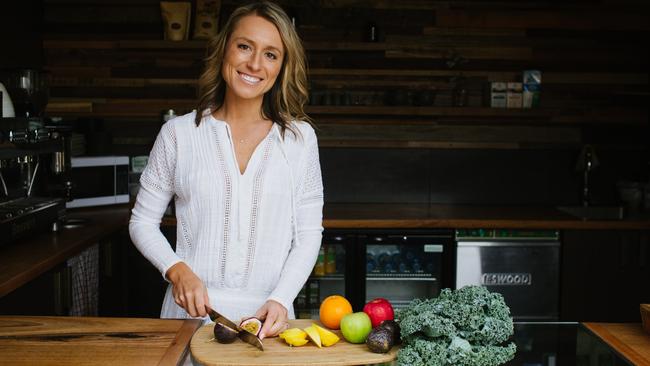
Be Fit Food was founded in 2015, promoting itself as Australia’s first meal program designed by a dietitian and doctor, with a focus on science-based programs. Before appearing on Shark Tank in 2017, the business had seen a 50 per cent failing. But that changed in a matter of weeks after Boost Juice’s Janine Allis invested, growing 1500 per cent and from five staff to 63. Founder Kate Save said revenue jumped to $4.5 million in its third year and, by 2019, it was on track to double that figure. Now Be Fit Food has received NDIS accreditation. It has also partnered with major Australian health insurance providers such as nib, HCF and Medibank so its customers can also receive rebates.
QPAY
QPay is a fintech start-up that primarily targets students. It simplifies transactions by integrating payments, ticketing, and other e-commerce solutions. Launched in 2015, it started its life as an online marketplace for ANU students. Founders Zakaria Bouguettaya and Andrew Clapham saw an opportunity in the open banking sector and focused on making Qpay a digital bank for students, including a prepaid debit card product. The pair went on Shark Tank in 2018 after completing $10 million in transactions and landing $570,000 in capital from start-up investors Sydney Angels. They were looking for a $380,000 investment for 8.4 per cent equity. And they got it in a Shark Tank first – Steve Baxter and Naomi Simpson splitting the deal and equity between them. Since then the business has launched in other countries and has branched out into serving clubs as well as students. In 2021 it raised over $1.15m from an equity crowd-funding campaign with Birchal. The company has yet to announce its arrival in the US market, but it does plan to hold an IPO in the next few years.
HEGS
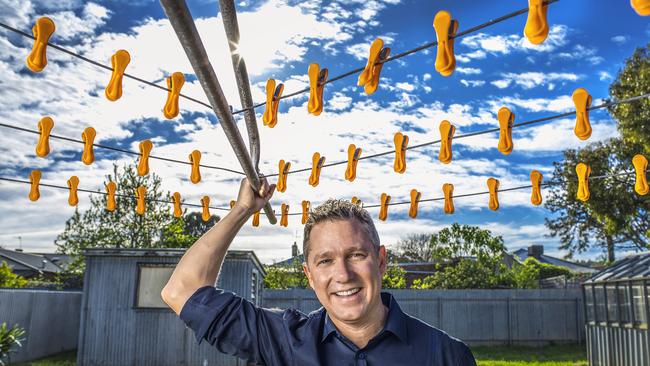
Pegs with hooks to hang clothing – this was the simple idea behind Hegs – and it worked.In 2015 founder Scott Boocock landed $100,000 Ms Simson for a 15 per cent stake in the company. She managed to beat out Mr Baxter by offering the company an additional $280,000 loan. It wasn’t all smooth sailing for the company, which went into voluntary administration in 2019, before being rescued by businessman Steven Thompson who first put the revolutionary clothes pegs on the shelves of national electronic retail chains. Four years later, Hegs is back powering along and is stocked by major retailers such as Woolworths, Coles, and Harvey Norman outlets.
CARDLY
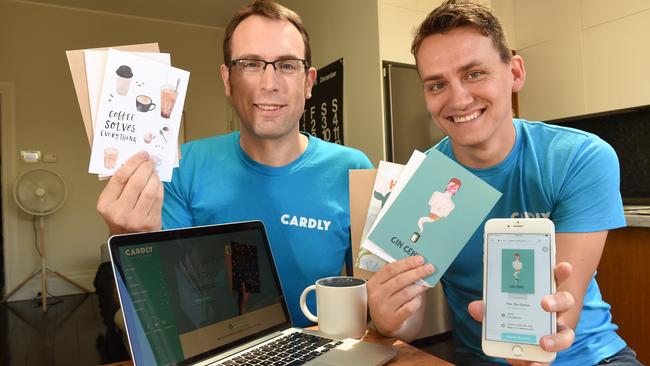
Cardly launched in 2015, allowing customers to purchase and write on digital greeting cards which are then printed and sent to the recipient by the company. In 2017, founders Patrick Gaskin and Tom Clift walked away from a $250,000 deal (which they had shaken on with RedBalloon founder Naomi Simpson). In the end, they landed on 15 per cent for $150,000, plus a $100,000 loan that would convert into an additional 5 per cent if she delivered 50,000 customers in six months. After filming, the deal fell through. But Cardly is still going strong as an international business and raised $230,000 back in 2018.
THE QUICK FLICK
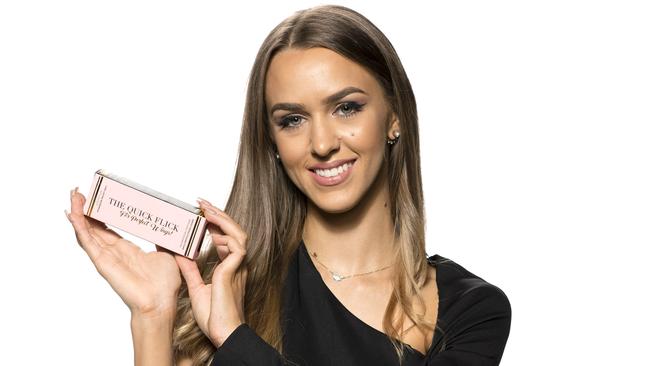
The Quick Flick also made waves when it also turned down a deal on Shark Tank in 2019. Founder Iris Smit went on the show with a pre-loaded eyeliner stamp invention. Andrew Banks offered $300,000 for a 25 per cent stake in the company, but Smit rejected it. “It was $300 grand I didn’t need,” Smit said at the time. And it looks like it was the right call. Within a month, the product went viral and Smit had made deals with the likes of Priceline, Nourish Life, Princess Polly, and Riley Rose in the US. Within 12 months she was sitting on a $10 million company. Now The Quick Flick has branched out into a variety of beauty and skincare product lines, including sunscreen and serum sprays.
ICAPSULATE
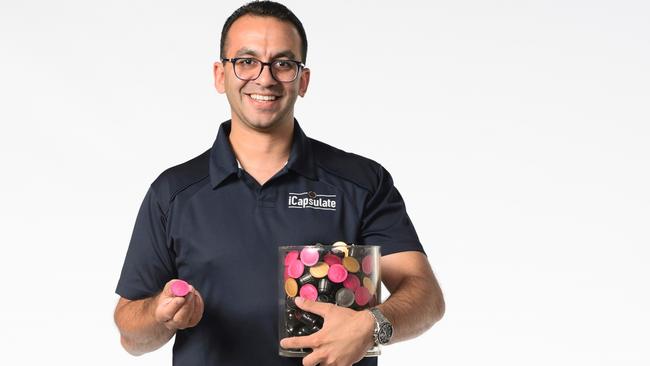
The largest Shark Tank Australia investment ended up also being the largest dodged bullet for some of the sharks. Coffee pod company iCapsulate ended up agreeing to a whopping $2.5 million investment from Andrew Banks, but it was revealed later the deal had failed to pass due diligence. Just as well, as the company was marred by controversy in the months after the episode aired, and fell into administration in September 2018.
Shark Tank Australia, Tuesday, 7.30pm



